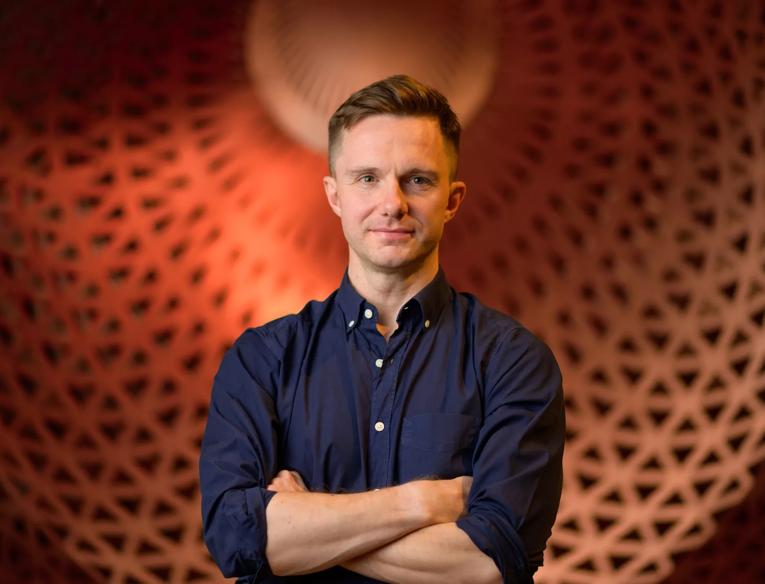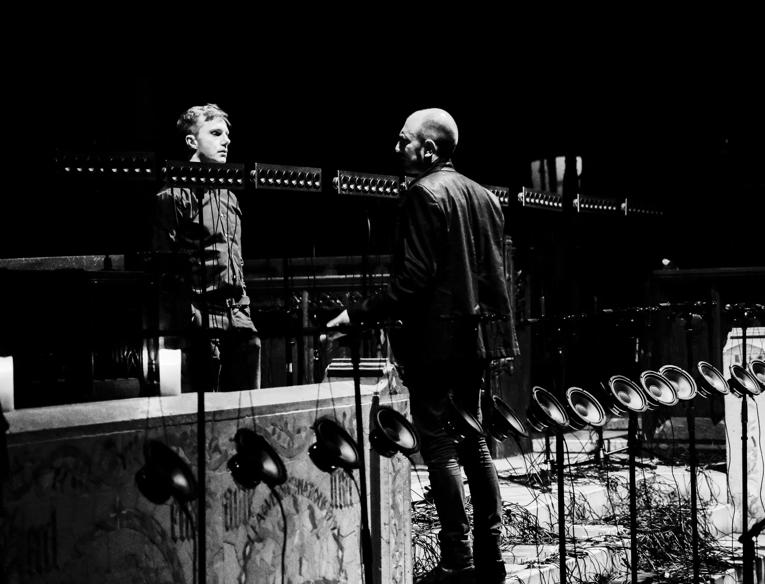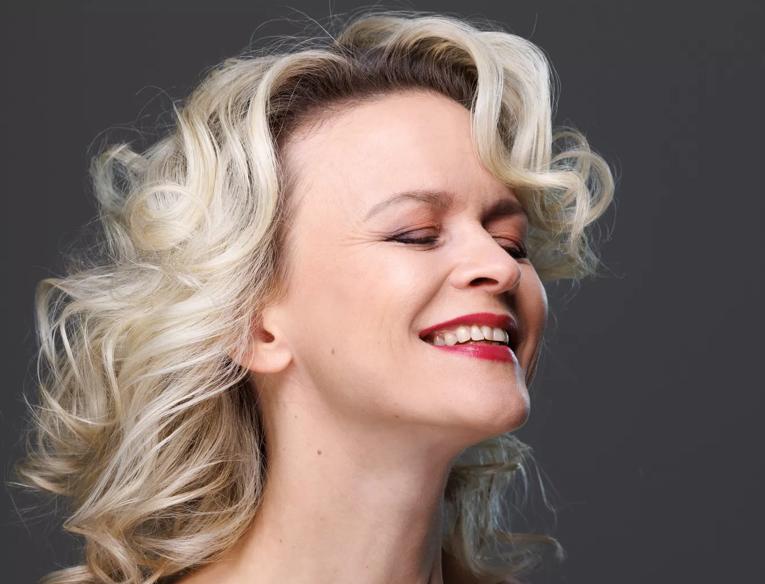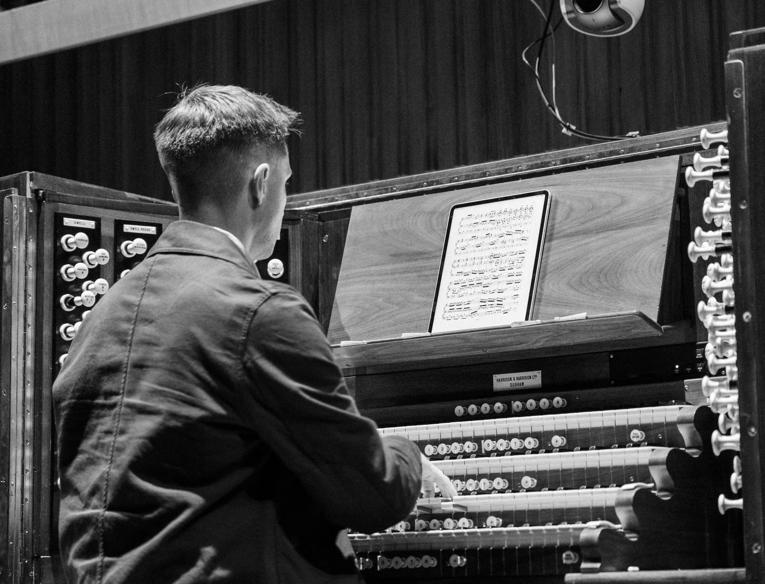Memories of the Royal Festival Hall organ
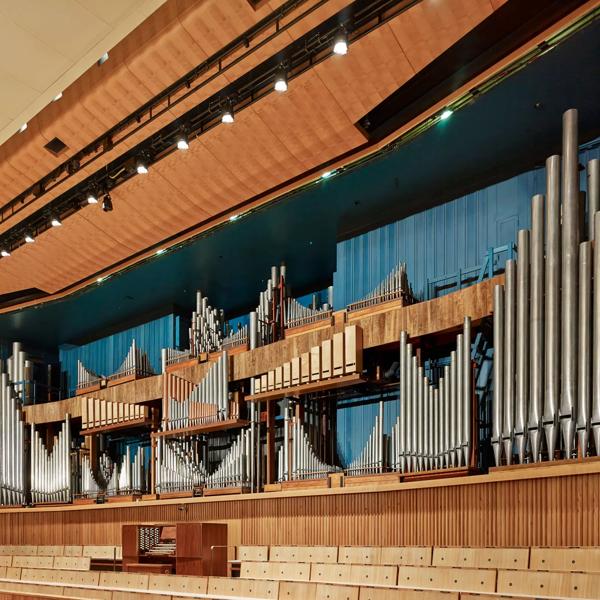
We’ve played host to a remarkable breadth of instruments since the Royal Festival Hall first opened its doors in 1951, but none as sizable, or as ubiquitous as our own Royal Festival Hall organ.
Constructed between 1950 and 1954 to the specification of London County Council consultant Ralph Downes, this remarkable Harrison & Harrison instrument boasts 7,866 pipes which range in length from being smaller than a baby’s little finger to a spectacular 32 feet.
But the organ hasn’t quite been ever-present here at the Southbank Centre. Between 2005 and 2007 the Royal Festival Hall underwent restoration and reconstruction work, work which necessitated the removal of the instrument. However the organ was out of action for a few years longer than the auditorium, nine years in fact. During this time it was painstakingly restored and refitted by Harrison & Harrison thanks in no small measure to significant donations from many of you through our Pull Out All The Stops fundraising campaign.
As part of Pull Out All The Stops we asked you to share your own memories of the organ. And the 70th anniversary of the organ’s first concert, presents an opportune time to revisit some of those stories. As you'll read, it appears we’re lucky to have had the organ for so long given how many musicians confessed to having come close to wrecking the instrument.
But before we get to the recollections of those lucky enough to have pulled its stops, let us begin with the memories of our audiences. Our organ has not only produced some fantastic concerts over the years, but is also responsible for comfort at a time of crisis, for some hasty school exits, for a chocolate box bribe, and also for at least one marriage.
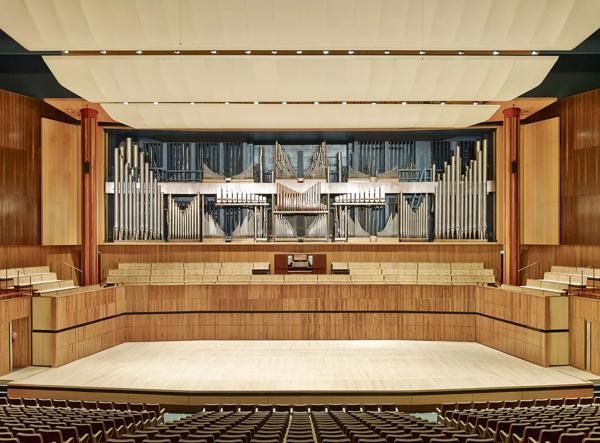
Memories of hearing the Royal Festival Hall organ
An unforgettable opening night
‘I was at the opening concert of the Royal Festival Hall Organ in 1954. One part that stood out was when a messenger came onto the stage with a sealed envelope containing a tune submitted by Sir George Dyson. The envelope was opened, and the tune played on the organ for the blind organist Andre Marchal. Monsieur Marchal then made up a 10 minute improvisation, using the organ’s full resources, a feat that absolutely astonished the audience, the orchestra and Sir Adrian Boult who had remained on the platform to witness it; a moment in musical history that I’ll never forget.’
Mr. Davis, Devon
Accident or cheeky wager?
‘On Saturday 27 March 1954, just three days after the inaugural concert, I attended the recital by four organists at the Royal Festival Hall. The final performer was George Thalben-Ball who took a bow and climbed on to the organ bench. He stood on the pedals to adjust the position of the seat which caused a loud discordant noise as the previous registration had not been cancelled. It would be good to know after all this time whether it was purely accidental or whether, as was subsequently rumoured, it had been set up with a ‘bribe’ of a huge box of chocolates to the previous performer, Susi Jean.’
Stanley Bird, London
Stops in the name of love
‘The first time I heard the Royal Festival Hall organ was in 1955. A young man from the church I attended started travelling on the same train as me; from Staines to Waterloo each morning and on the return journey each evening. On one of these evenings he said to me ‘if you aren’t in a hurry to get home, there’s an organ recital at six o’clock in the Royal Festival Hall – we could go’. We did, and it was not only the first time I’d heard the Royal Festival Hall organ, but was also the first time we’d been out anywhere together. We went on to attend the rest of the weekly recitals in that series. Eighteen months later we got engaged and have been happily married ever since.’
Mrs. Taylor, Staines-on-Thames
Put on the red light
‘I used to work for the musician Lionel Salter, who said it was his ambition to make the organ’s red light come on, meaning that he had invoked its maximum capacity. He achieved this in the first concert of the 1958 Hoffnung Music Festival.’
Virginia Stowell, Ealing

A touch of French glamour
‘Back in the late 1950s I came to hear French organist Jeanne Demessieux play a massive piece by Liszt called ‘Ad nos, ad salutarem undam’ on the Royal Festival Hall organ. In she came with long hair flowing down her back, and wearing high heels! How did she manipulate the pedals? Did she do a quick unseen change of shoes? It always remained a mystery to me.’
Janet Robertson, London
To Hall and Bach
‘My Dad worked for the Greater London Council at County Hall. In those pre-security days, as a schoolboy up from Surrey, I could just wander in through the main doors of County Hall and make my way to the canteen in the depths of the building. There, a great fry up awaited: egg, chips, bacon, the works. Then, on to the 5.55 recital at the Royal Festival Hall. The 5.55 recitals were my introduction to Bach and to the organ. The first season I went to, in the late 1960s, was just titled ‘Bach’ and contained nothing else. Each concert opened and closed with a major Bach work, while in the middle was a group of chorale preludes. Each prelude was beautiful, perfect, miniature and mostly registered for just two or three stops. More than the big works, they brought out the wonderful character of individual flue and reed stops of the Royal Festival Hall organ’.
Trevor Sutton
A post school sprint
‘When I was at school in Sevenoaks I was persuaded by my friend Chris Hewlett that the best way to spend our pocket money was to run out of the last lesson on a Wednesday, sprint the mile down to the station, jump on the London train (we’d bought the tickets in the mornings to save time), then race over to the Royal Festival Hall just in time for the 5.55 organ recital. We heard many inspiring concerts there – Gillian Weir and her fabulous split dresses were particularly memorable! I also vividly remember hearing Ralph Downes playing Reubke’s Sonata on the 94th Psalm (although not as part of the 5.55 series), as well as hearing Messiaen’s music for the first time. What an education.’
Tim Hucker

Not quite alright on the night
‘From 1967 until 1971 I studied and worked in London and frequently attended organ events, especially the late afternoon Wednesday organ recitals at the Royal Festival Hall. I was there to see Xavier Darasse blow the action fuses in the final piece of his concert – possibly Ligeti’s ‘Volumina’ as the score was more graphical than notated. Ralph Downes darted in and out of the organ trying to fix it, but without success’.
Warner Haldane
‘I was at the March 1971 recital when Xavier Darasse attempted to perform Ligeti’s ‘Volumina’ and fused the entire organ with the first chord. Fortunately it was the last piece on the programme. He said it had been all right in rehearsal’.
John Warren
Comfort in crisis
‘I remember Ian Curor playing the magnificent Royal Festival Hall Organ in December 1983. The lights dimmed, and the choir of the London Hospitals sang ‘In the Bleak Midwinter’ to the exquisite light of flickering candles. During the concert, news had been received of a bomb explosion outside Harrods. The then Prime Minister Margaret Thatcher was at the concert and left as soon as it ended, to support and comfort the injured. The organ certainly managed to soothe the participants and the audiences too.’
Ann Bird, London
Trip the Light, Fantastic
‘Sir Philip Ledger, as he eventually became, was at school with me and even then, he showed great ability as an organist. Some years later, when I was working in London, I went with colleagues to hear Philip giving one of the afternoon recitals on the Royal Festival Hall organ. I visited him in the Green Room afterwards and told him how much we had enjoyed the recital. I added that I always looked forward to seeing the light on the console go on which meant that all the stops were out. As I was saying this, I realised that it was not really an appropriate remark to make to a gifted musician who had just given a superb recital in which the light had come on just once, at the end of his performance. Nevertheless, Philip smiled and replied that the light did briefly tend to concentrate the mind. Sir Philip died in November 2012, just before his 75th birthday. I donated a pipe on the organ in his memory.’
Dr. Bernard Wells

Memories of playing the Royal Festival Hall organ
A spring on our steps
‘My husband, Peter Hurford gave eleven concerts on the Royal Festival Hall organ between November 1956 and October 1965, including a number of BBC recordings. At one of these a member of the audience released a toy Slinky on the top step of the auditorium, which proceeded to make its own way down the steps in time to the Bach Trio Sonata which Peter was playing. Unsurprisingly, the audience was convulsed with laughter!’
Pat Hurford
A small part with a big impact
‘My association with the organ in the Royal Festival Hall organ goes back to 1958. I had graduated from the Royal College of Music the year before and was trying to eke out a living as a freelance musician. One of my more interesting voluntary activities was as a member of the Morley College Symphony orchestra, where I played orchestral piano, celesta and organ parts as required. In November that year we participated in the Hoffnung Interplanetary Music Festival, the first half of which ended with the world première of The United Nations by Malcolm Arnold, conducted by the composer.
‘I had heard that there was a part for organ in ‘The United Nations’, but as the concert drew near there was no still no sign of it – in spite of Arnold’s assurances. I spoke to Malcolm and said ‘Are you really sure there is an organ part?’ ‘Yes,’ he said, ‘when the ‘atom bomb’ goes off at the big climax you just pull out all the stops and lean on the keys with your elbows!’ This I duly did, but due to the incredible cacophony from the huge orchestra, plus four military bands who were marching up and down the aisles, each playing its own music, I must admit that the organ was virtually inaudible!
‘A further performance was booked for the following February, but shortly beforehand I was given a copy of a letter from S.L.Bacon, Assistant General Manager, Festival Hall, London, to J.Phipps, Esq (who managed the Hoffnung concerts), dated 24 January, 1959. It read as follows:
“You may or may not be aware that on the occasion of the last Hoffnung concerts the action fuses of our organ were blown, due to the fact that all the keys of the organ were put down together and held down for an undue period. This is in any case not good for the organ, and has the unfortunate result of blowing the fuses, which take a considerable time to replace, in fact we spent the whole of the next day putting this matter right.
We are anxious – and no doubt you will be too – that this should not occur again at the concerts on 6th February. May we have your assurance that the appropriate steps will be taken to avoid a recurrence of the damage to the organ.”
‘I showed the letter to Malcolm, saying ‘Last time we nearly wrecked the organ’. ‘Jolly good’, he replied, ‘We’ll wreck it completely this time!’ In the event I compromised with a slow glissando with the palm of my hand, and the organ survived to live another day!’
John R. Weeks

A page turn for the worse
‘I remember vividly, as a Guildhall School of Music pupil of the Royal Festival Hall’s organ curator Nicholas Danby, turning pages and pulling stops for the eminent Viennese organist and composer, Anton Heiller. I presented myself at the Hall for his final practice. He arrived flustered and late, his flight having been diverted because of fog, and he complained of a headache. I thought my job might be easy, as he played from memory, using yellow Eulenberg ‘miniature scores’ mainly to mark-up stop registrations. At one point he asked me to play some bars of a Bach Trio Sonata movement so he could judge its effect from the auditorium.
‘Turning the miniature score pages was tricky, as the small pages didn’t come within the sweep of the brass hooks on the music desk; besides, the pages were springy and tended to snap shut. Anton Heiller produced two pencil rubbers to hold the pages in place. I became deft at whipping away the two rubbers, flipping the page and replacing them, with my attention mainly focused on the stop changes ahead.
‘Then, during the performance, on one page-turn, the rubbers slipped, and cascaded down the four keyboards, with one rubber jamming between two pedal keys. Heiller played on. Fortunately I was able to retrieve the rubbers without any extraneous sounds from the organ. The audience could not have heard Heiller’s momentary gasp, and were perhaps unaware of the incident altogether; but I have not forgotten it’
Edward Bennett
A late night opportunity
‘As an organ student at the Royal Academy of Music between 1985 and 1988, I had organ lessons with the late David Sanger. He gave us, his students, some fabulous opportunities including a memorable session late one night at the Royal Festival Hall when, as part of his own rehearsal time for a ‘Wednesday 5.55’ he allowed the organ students to play the organ for an hour or so. I’ll never forget playing the ‘Te Deum’ by Jean Langlais.
David Beeby
All night long
‘In 1979, Peter Dickinson invited me to play at Keele University and I took the opportunity of playing the solo part of his Organ Concerto to him. I had never had the chance of a concert performance but, in January 1986, I was chosen as the soloist for the world première recording which was to take place at the Royal Festival Hall with David Atherton and the BBC Symphony Orchestra.
‘We had only one day with two three-hour sessions to rehearse and complete the whole recording. We had to leave the fiendish solo cadenza to the end, once the orchestra had left. As I embarked on an increasingly athletic pedal solo, the stage hands for the next concert burst through the door. They asked how long I was going to be and apparently I told them that I would take all night if they continued to interrupt me!’
Jennifer Bate
